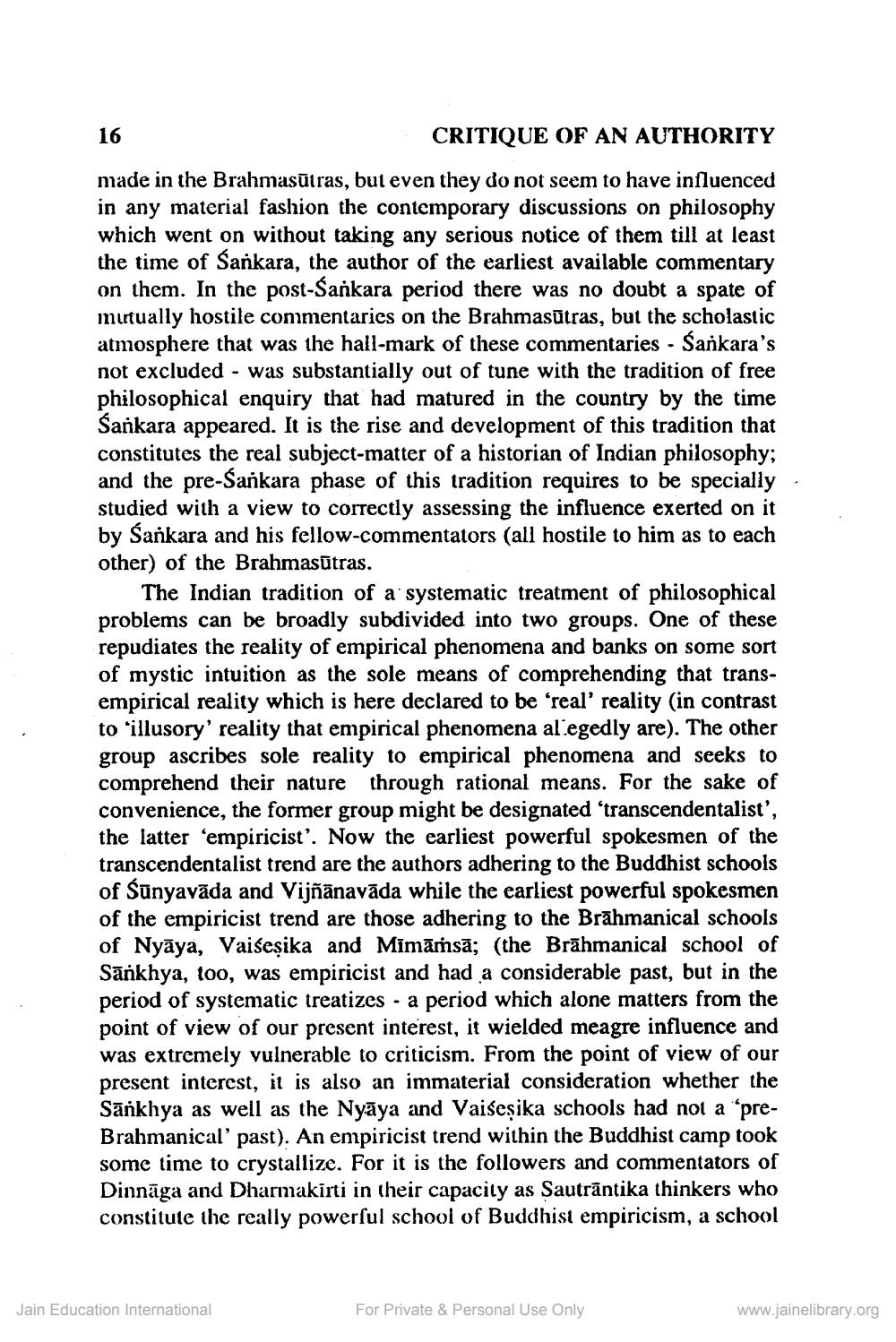________________
16
CRITIQUE OF AN AUTHORITY
made in the Brahmasūtras, but even they do not seem to have influenced in any material fashion the contemporary discussions on philosophy which went on without taking any serious notice of them till at least the time of Sankara, the author of the earliest available commentary on them. In the post-Sankara period there was no doubt a spate of mutually hostile commentaries on the Brahmasūtras, but the scholastic atmosphere that was the hall-mark of these commentaries - Sankara's not excluded - was substantially out of tune with the tradition of free philosophical enquiry that had matured in the country by the time Sankara appeared. It is the rise and development of this tradition that constitutes the real subject-matter of a historian of Indian philosophy; and the pre-Sankara phase of this tradition requires to be specially - studied with a view to correctly assessing the influence exerted on it by Sankara and his fellow-commentators (all hostile to him as to each other) of the Brahmasūtras.
The Indian tradition of a systematic treatment of philosophical problems can be broadly subdivided into two groups. One of these repudiates the reality of empirical phenomena and banks on some sort of mystic intuition as the sole means of comprehending that transempirical reality which is here declared to be 'real' reality (in contrast to 'illusory' reality that empirical phenomena alegedly are). The other group ascribes sole reality to empirical phenomena and seeks to comprehend their nature through rational means. For the sake of convenience, the former group might be designated 'transcendentalist', the latter 'empiricist'. Now the earliest powerful spokesmen of the transcendentalist trend are the authors adhering to the Buddhist schools of Sūnyavāda and Vijñānavāda while the earliest powerful spokesmen of the empiricist trend are those adhering to the Brāhmanical schools of Nyāya, Vaiseșika and Mimārsā; (the Brāhmanical school of Sānkhya, too, was empiricist and had a considerable past, but in the period of systematic treatizes - a period which alone matters from the point of view of our present interest, it wielded meagre influence and was extremely vulnerable to criticism. From the point of view of our present interest, it is also an immaterial consideration whether the Sankhya as well as the Nyāya and Vaisesika schools had not a "pre Brahmanical' past). An empiricist trend within the Buddhist camp took some time to crystallize. For it is the followers and commentators of Dinnāga and Dharmakirti in their capacity as Sautrāntika thinkers who constitute the really powerful school of Buddhist empiricism, a school
Jain Education International
For Private & Personal Use Only
www.jainelibrary.org




